INTRODUCTION
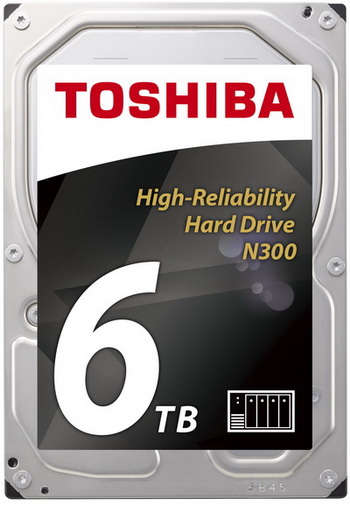
3.5 inch mechanical hard disk drives may still not hold a candle against the newest solid state drives both in terms of performance and power consumption but thanks to their immensely better price/capacity ratio they still represent the best and perhaps only choice for storage demanding applications. To get an idea about how much different the price/capacity ratio between HDDs and SSDs is currently we only need to point out that a 1TB SATA SSD costs roughly the same as a 10TB 3.5" SATA HDD. Of course as many of you already know HDD manufacturers currently offer models designed for use with specific hardware (specialized) such as servers, desktop computers, network video recorders and even network attached storage (NAS) devices so just knowing the storage capacity you need is not enough. Today's review is about the 6TB version (HDWN160) of the new N300 High Reliability Hard Drive designed for use with NAS devices by our friends over at Toshiba.
Toshiba Electronics Europe (TEE) is the European electronic components business of Toshiba Electronic Devices and Storage Corporation. TEE offers a broad IC and discrete product line including high-end memory, microcontrollers, ASICs and ASSPs for automotive, multimedia, industrial, telecoms and networking applications. The company also has a wide range of power semiconductor solutions as well as storage products including HDDs, SSDs, SD Cards and USB sticks. TEE was formed in 1973 in Neuss, Germany, providing design, manufacturing, marketing and sales and now has headquarters in Dusseldorf, Germany, with branch offices in France, Italy, Spain, Sweden and the United Kingdom. TEE employs approximately 300 people in Europe.
The N300 High Reliability HDD may be aimed towards use with NAS devices (supports multi-RAID systems with up to 8 drives) but that doesn't mean Toshiba placed performance second to power consumption, heat buildup and vibrations. So since the N300 HDD spins at 7200RPM and has 128MB cache it can achieve data transfer speeds of up to 210MB/s for the 6TB model that we have here (HDWN160), 240MB/s for the 8TB model and 200MB/s for the 4TB model. Of course endurance/durability is equally important (if not more) so the N300 is rated for a workload factor of 180TB (Terabytes Written) per year, has an MTBF (meantime between failures) of 1 million hours and is backed by a 3 year limited warranty. Other features include internal shock detection (helps protect your drive and data), built-in rotational vibration (RV) sensor (ensures high reliability), heat prevention controls (automatically adjust seek speed to minimize potential data damage), error recovery control (helps prevent critical downtime for business-use multi-RAID environments) and a proprietary tied spindle motor (stabilizes the motor drive shaft at both ends to curb system-induced vibration and optimize system performance during read/write operations).
SPECIFICATIONS AND FEATURES
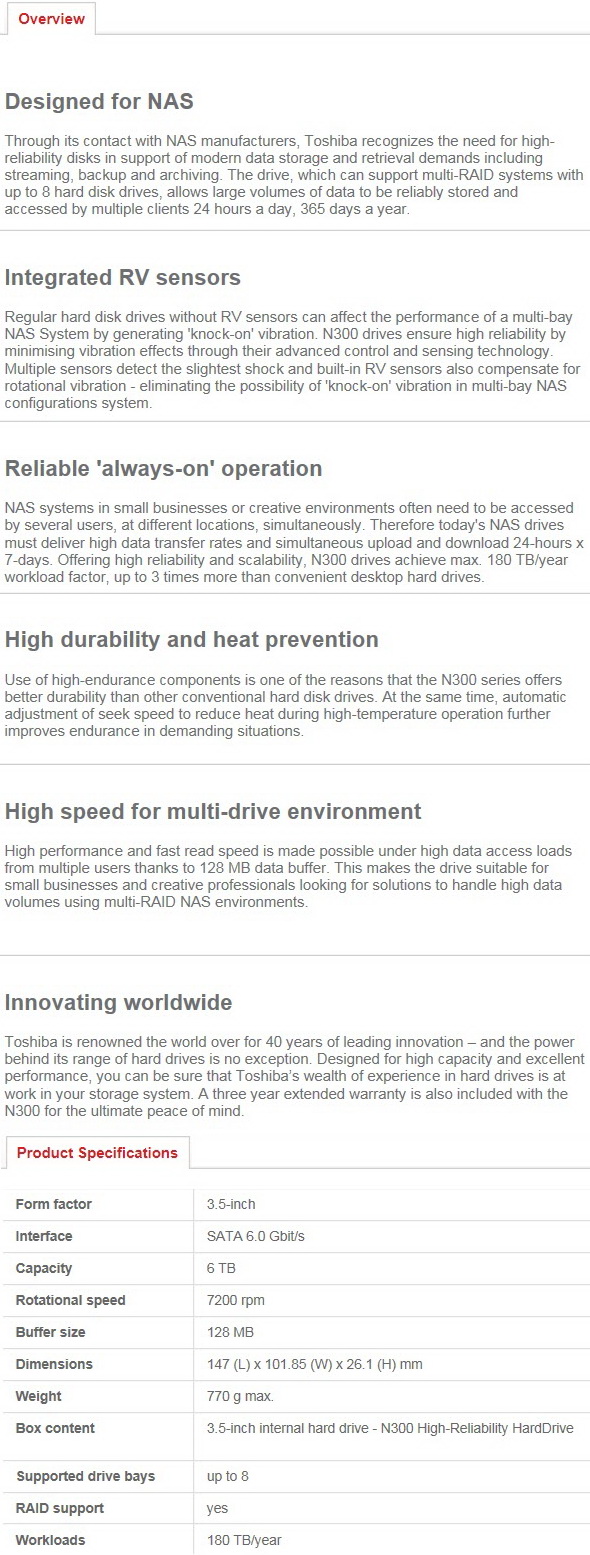
PACKAGING AND CONTENTS
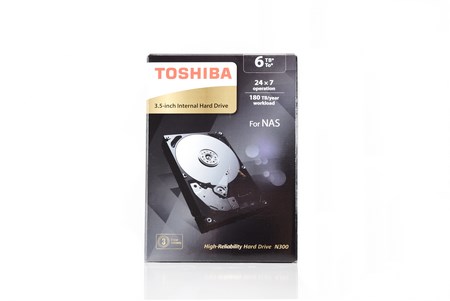 We received the retail version of the N300 which comes inside a box that has a product picture at the front.
We received the retail version of the N300 which comes inside a box that has a product picture at the front.

 The main features are listed on the left side and at the rear of the box in 9 languages.
The main features are listed on the left side and at the rear of the box in 9 languages.
 Along with the drive you're also getting the installation and safety guide.
Along with the drive you're also getting the installation and safety guide.
THE N300 6TB
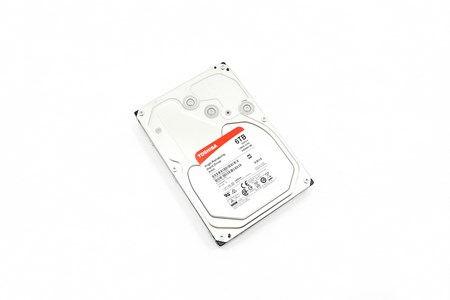 The enclosure of the N300 6TB HDD is nothing we haven't seen in the past.
The enclosure of the N300 6TB HDD is nothing we haven't seen in the past.
A sticker at the top of the drive contains information such us the serial and part numbers and barcodes, rotational speed and available cache, electrical requirements, firmware version, factory rollout date (April 7th 2017 for this sample), country of origin and several certification and warning logos.
 Typically when looking at the base of the drive we see that all of the modules are placed on the other side of the PCB for increased protection.
Typically when looking at the base of the drive we see that all of the modules are placed on the other side of the PCB for increased protection.
The usual SATA power and data connectors are placed at the rear of the drive right next to four pins.
TEST BED
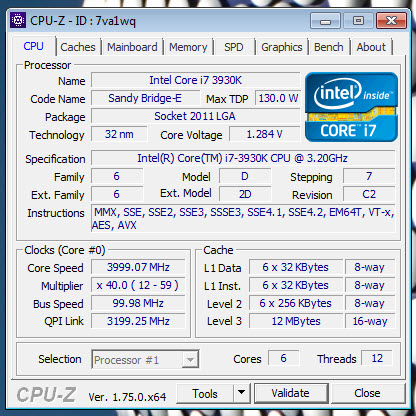

TESTING METHODOLOGY
Thoroughly testing hard disk drives may require time and patience but that's just about it. Of course that doesn't mean that one must take it lightly, at least not when people base their decision on your results. True some choose to only use 2 or 3 benchmarking suits in order to measure the performance of a drive or drives since quite honestly most benchmarking suites do tend to agree with each other (so it's not really wrong) but we always like to take things a step further not because we have to but because we want to be almost 100% certain of the results we get and post in our charts.
So in this kind of reviews we will use a total of 7 different benchmarking suites in an effort to bring you the most accurate results across the board. Now the only reason why i say effort is because real-world usage is not always on par with what results one gets by running several benchmarks on a drive and that's mainly because there are many variables at work from ambient temperatures to hardware configurations and even firmware versions. The benchmarking applications we use are the AIDA64 suite (former Everest Pro), HD Tune Professional (as of October 2016 we also record seek times), HD Tach RW, ATTO, Sisoftware Sandra Pro, Crystal Disk Mark 64bit and the PCMARK 7 (secondary storage suite). These benchmarking tools are the best in what they do and as you will also see later on their results more or less agree. Each test is performed a total of 6 times and then the average is recorded into the charts. Temperatures are recorded using Hard Disk Sentinel and after 45 minutes of continuous testing in a 23 degrees Celsius temperature controlled room. Finally we also use an ExTech HD600 dBA meter on each of the drives (5cm away) in order to accurately record their noise levels (during access), although if you don't turn off all system fans when doing so it's quite possible that you will never even hear the drive. The operating system as usual is a fresh installation of Microsoft Windows 7 Ultimate Service Pack 1 with every update installed up until the 26th of August 2017.
TEST RESULTS - AIDA64 / ATTO
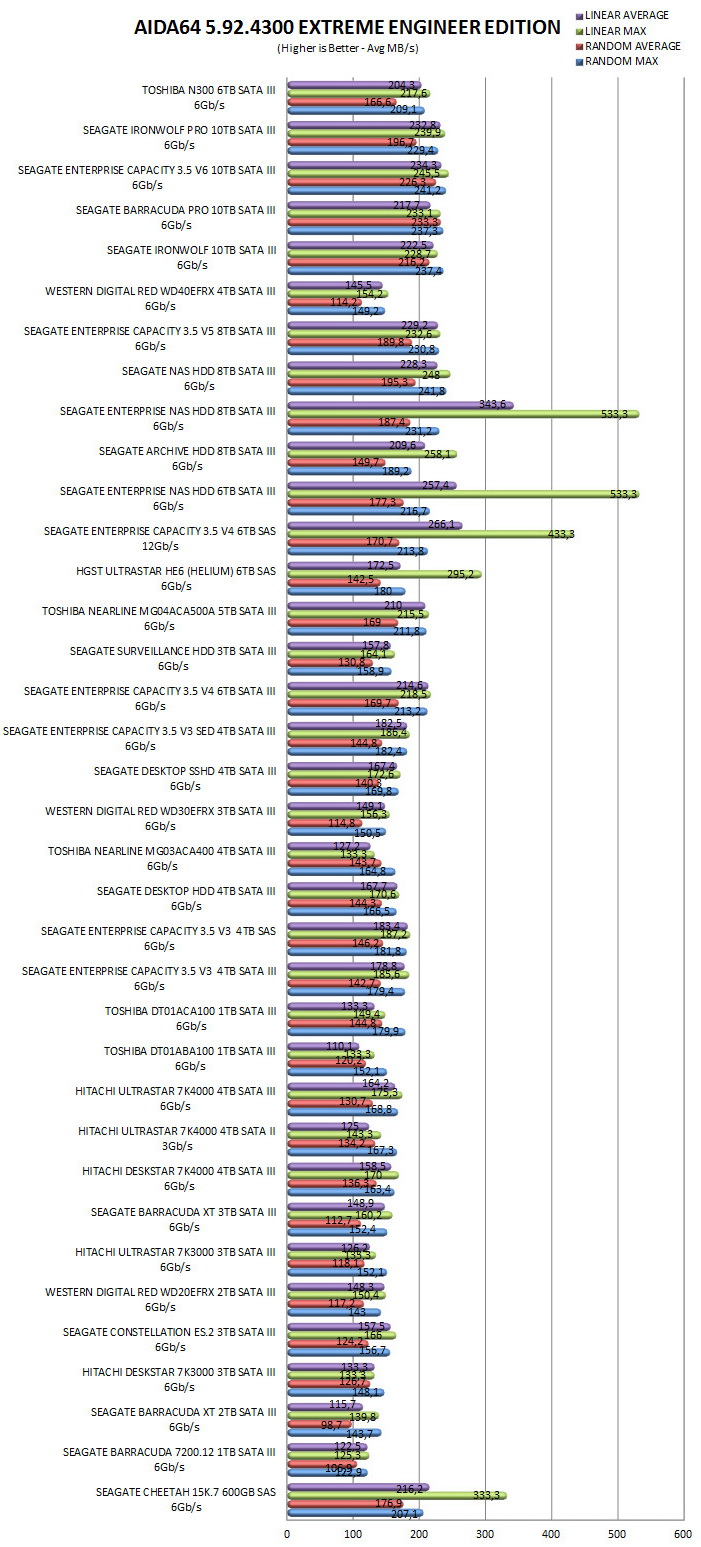

TEST RESULTS - HD TACH RW / HD TUNE PRO
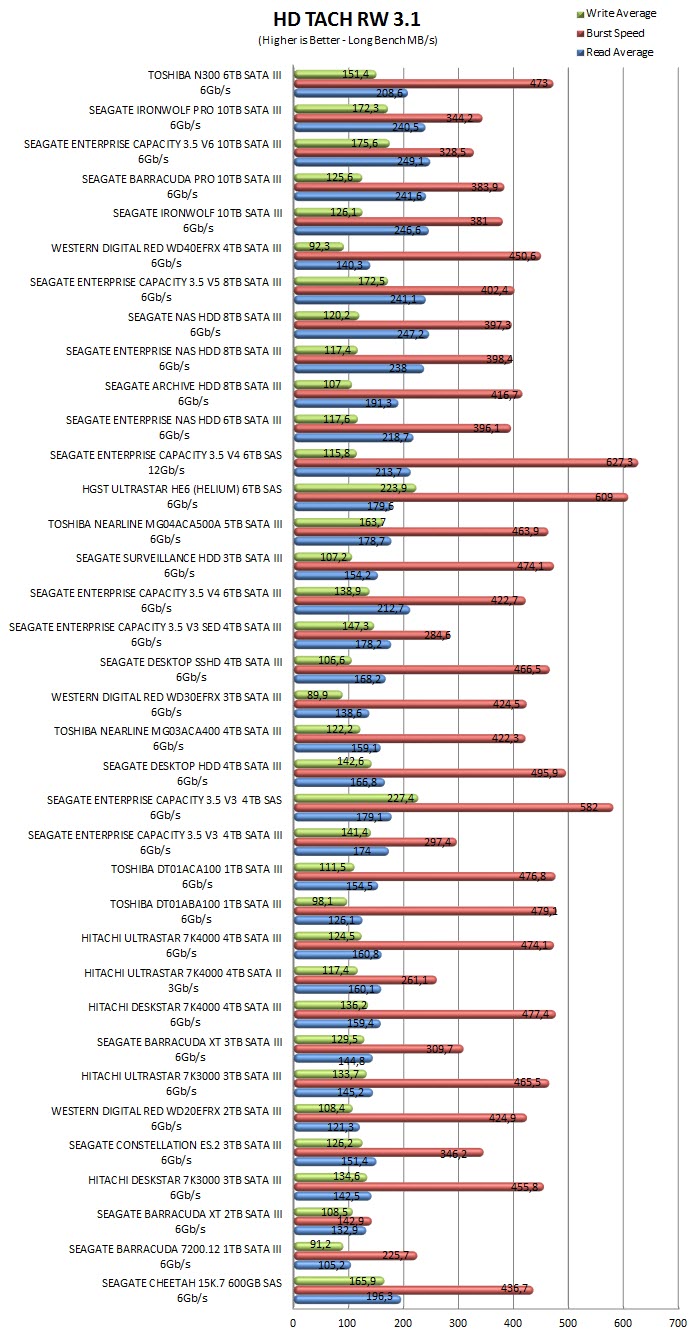

TEST RESULTS - SISOFTWARE SANDRA PRO / CRYSTAL DISK MARK X64
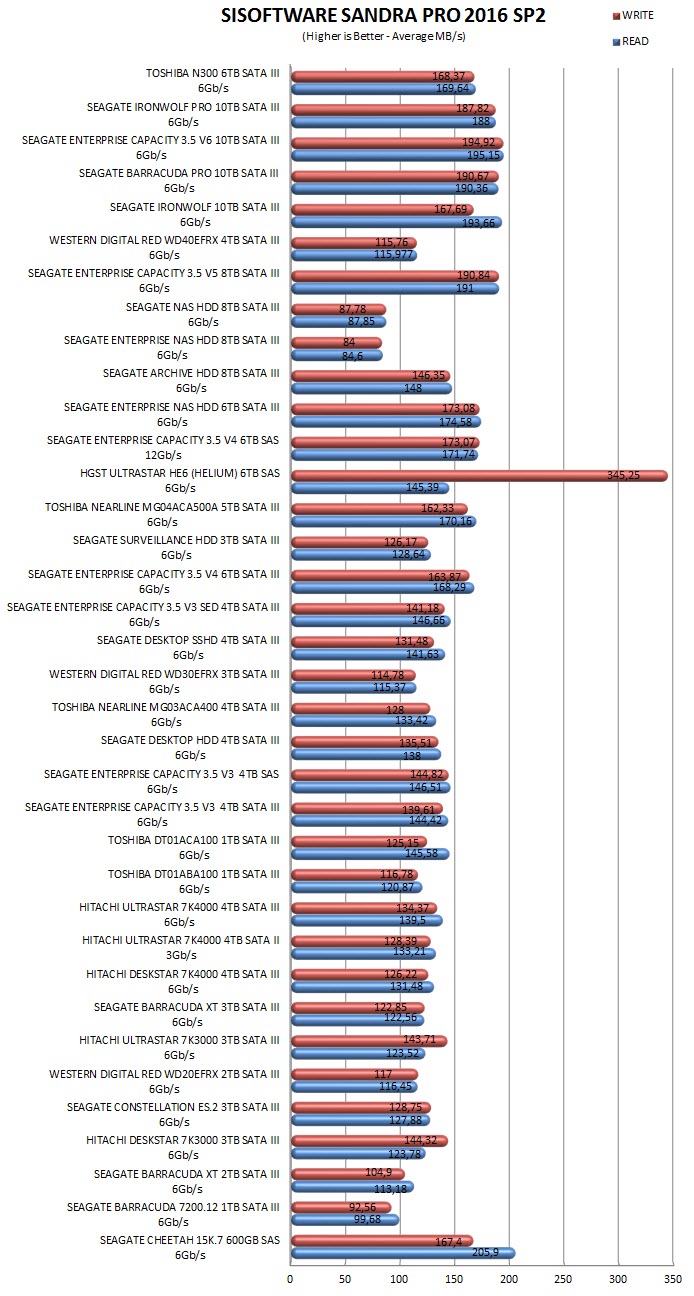

TEST RESULTS – PCMARK 7 / TEMPERATURES / NOISE LEVELS
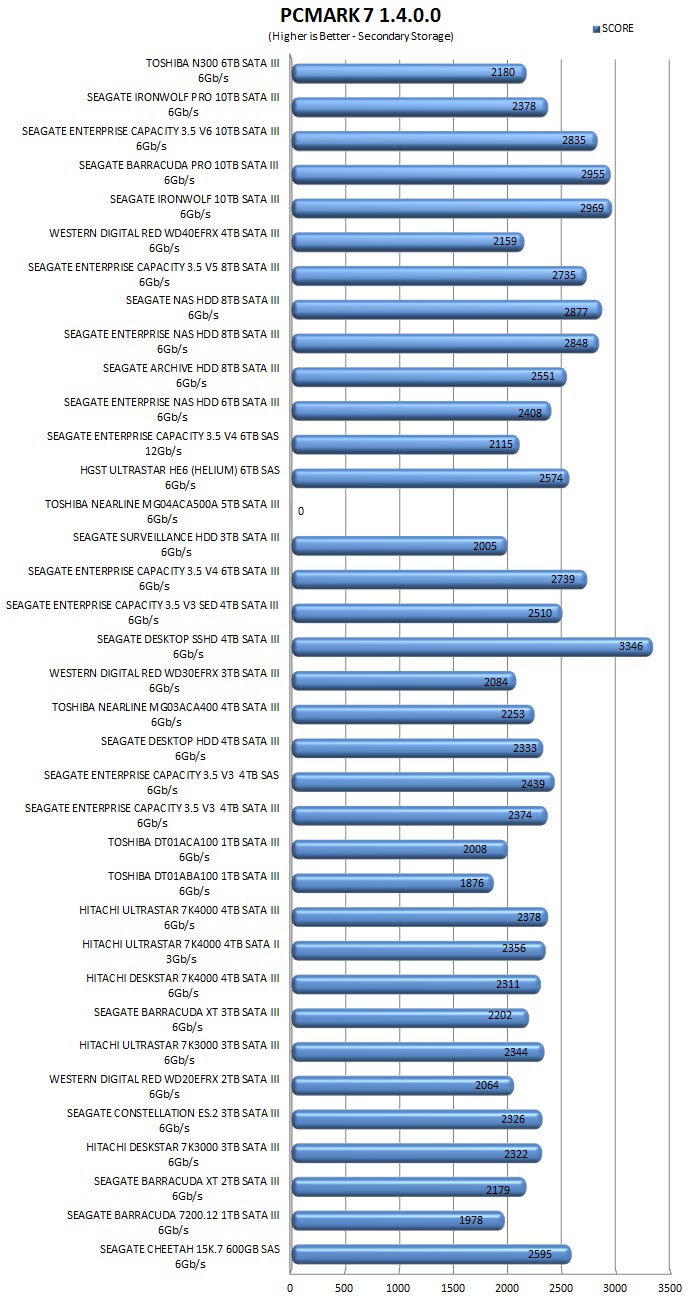


CONCLUSION
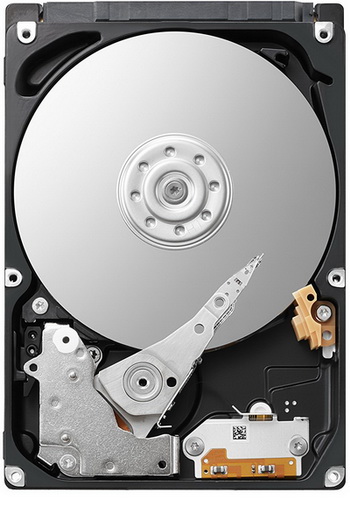 Judging by its features and specifications it’s quite clear that the N300 High Reliability Hard Drive for NAS by Toshiba was designed to take on the latest IronWolf HDD by Seagate both in terms of performance (we’ve yet to get our hands on the 6TB IronWolf variant but based on its specs sheet we know that it’s not as fast as the 10TB variant) and durability (both the N300 6TB and the IronWolf 6TB are rated for 180TB and have an MTBF of 1 million hours). According to both Toshiba and Seagate the IronWolf 6TB does seem to require less power at load compared to the N300 6TB (8W/10W) but I expect that for SMB use this will not represent a serious issue. We were somewhat impressed to see that in terms of temperatures the N300 keeps with the helium filled IronWolf/Pro models and that is perhaps even more important for 8 disk RAID systems. Unfortunately since the N300 line doesn’t currently have a 10TB variant we can’t directly compare it to all the other 10TB drives we have in our charts but once they do we’ll do our best to get our hands on it.
Judging by its features and specifications it’s quite clear that the N300 High Reliability Hard Drive for NAS by Toshiba was designed to take on the latest IronWolf HDD by Seagate both in terms of performance (we’ve yet to get our hands on the 6TB IronWolf variant but based on its specs sheet we know that it’s not as fast as the 10TB variant) and durability (both the N300 6TB and the IronWolf 6TB are rated for 180TB and have an MTBF of 1 million hours). According to both Toshiba and Seagate the IronWolf 6TB does seem to require less power at load compared to the N300 6TB (8W/10W) but I expect that for SMB use this will not represent a serious issue. We were somewhat impressed to see that in terms of temperatures the N300 keeps with the helium filled IronWolf/Pro models and that is perhaps even more important for 8 disk RAID systems. Unfortunately since the N300 line doesn’t currently have a 10TB variant we can’t directly compare it to all the other 10TB drives we have in our charts but once they do we’ll do our best to get our hands on it.
So just how much is Toshiba asking for their N300 6TB High Reliability Hard Drive for NAS? Currently the N300 6TB (HDWN160) retails for USD197.99 inside the USA (Amazon.com) and for 190Euros inside the EU (Amazon.co.uk) a price tag which is very similar to what Seagate asks for their IronWolf 6TB HDD. Unfortunately since we haven’t tested the 6TB variant of the IronWolf pro we can’t be 100% certain about which is best, what we do know however is that these two HDDs are very similar in everything. At the end of the day it seems that the N300 High Reliability Hard Drive for NAS has nothing to be jealous from its counterparts not only in terms of performance and endurance/reliability but also price and for that it gets our Golden Award.

PROS
- Build Quality (180TB Per Year With An MTBF Of 1.000.000 Hours)
- Very Good Read/Write Performance
- Features (RV Sensor / Internal Shock Detection / Error Recovery / Heat Prevention)
- Low Temperatures & Noise Levels
- 3 Year Limited Warranty
CONS
- Only Up To 8TB
- Reported Power Consumption At Load (2W over the IronWolf 6TB)

 O-Sense
O-Sense





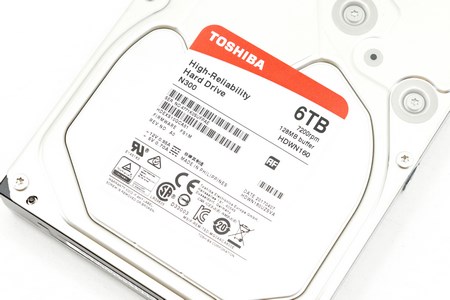



.png)

